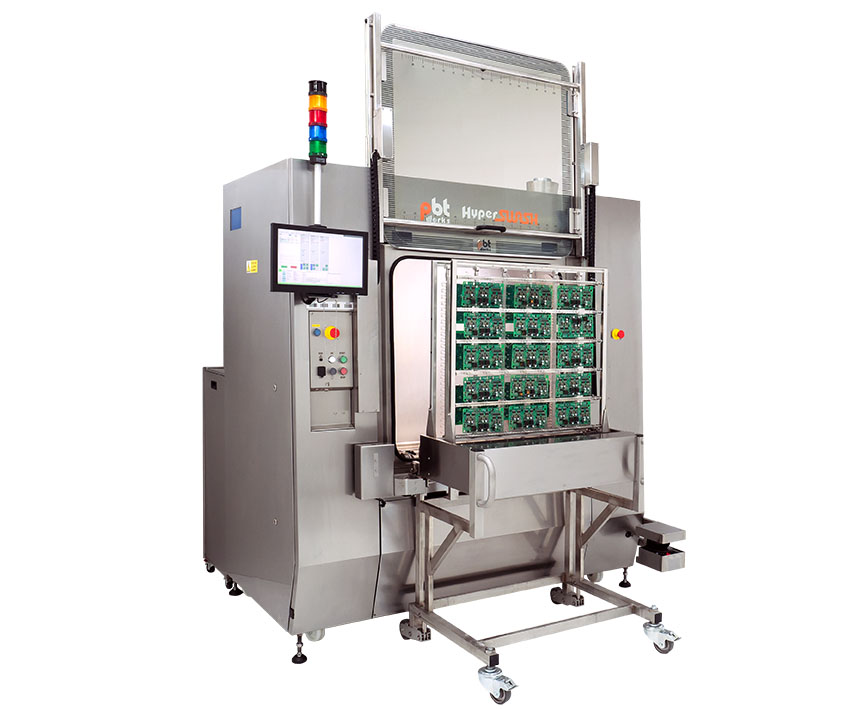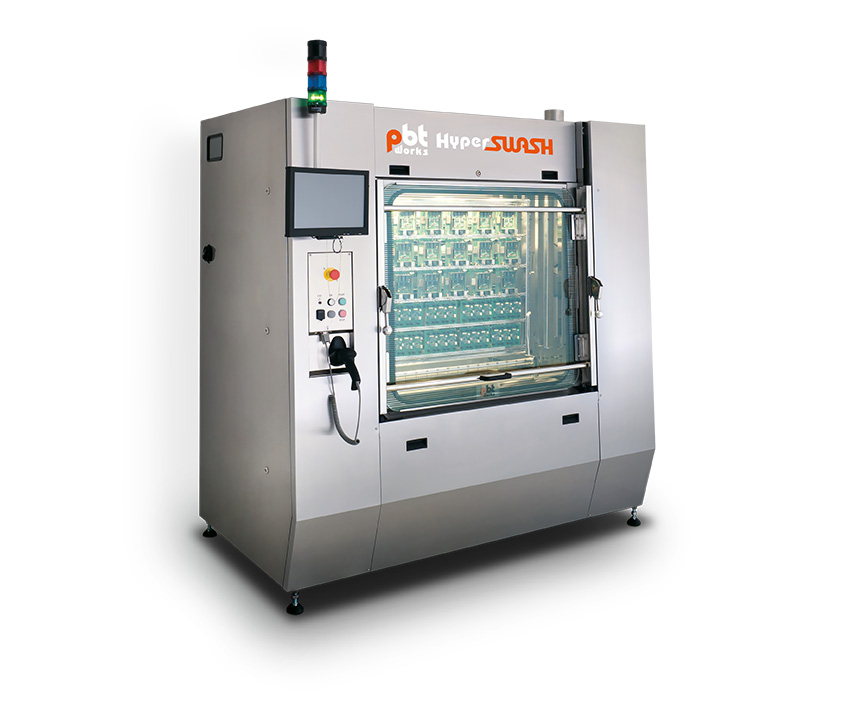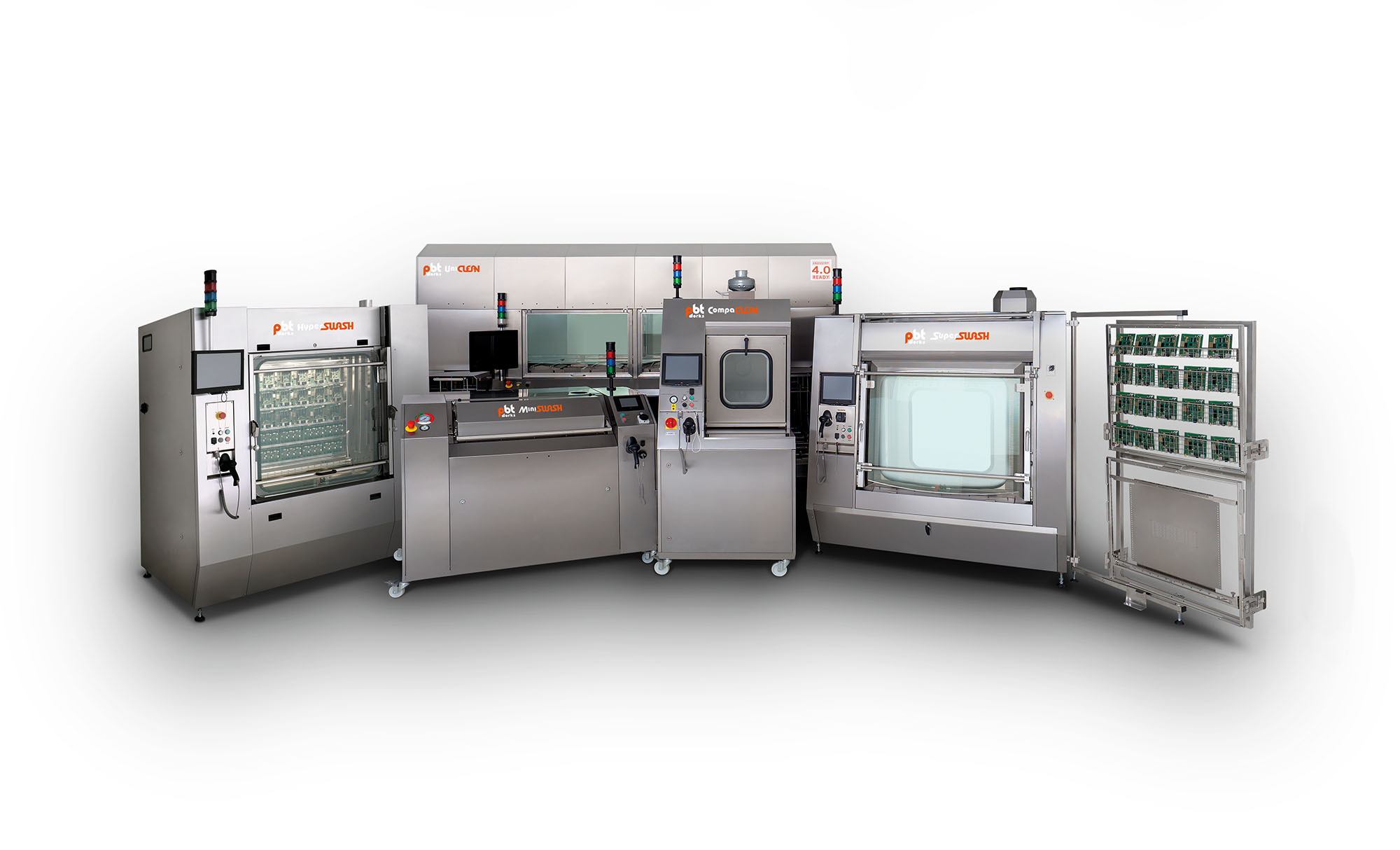The tradition of PBT Works s.r.o. goes back to the 80s. The company started as a joint-venture with Swiss company PBTechnik AG in 1989. PBTechnik AG was a commercial company supplying materials and machines for electronic assembly manufacturers. Their task was to build a market in the Czech and Slovak Republics at that time. They soon started designing some special machines for this brand (small stencil printers, rebuilding wave soldering machines, and designing first cleaning machines for electronic assemblies). These little machines were successful, and soon, PBT Works established a network through which they could sell it in different countries. Later, the company bought off the shares of the Swiss mother company and set their enterprise.
Easy Engineering: What are the main areas of activity of the company?
PBT WORKS: After 30 years of designing the first cleaning systems for electronics, we now almost entirely specialize in cleaning equipment. We still make small offline stencil printers in the second production program, suitable for laboratories, development shops and small production.
We design, manufacture, sell and support cleaning machines for PCB assemblies, maintenance in electronics and fine mechanical components worldwide. Our machines became recognized for very high process results.
It is necessary to explain today’s most significant challenge in cleaning electronic assemblies on printed circuit boards. Cleaning removes organic and ionic residues, but the most important thing is to remove it from under the components, where the poles are together at the closest. With the introduction of new packages, like BGA, flip chips, small passive components, and QFN, these gaps go to microscopic dimensions. To remove contamination is not a simple job, comparable with other cleaning tasks in mechanics and other fields.
Cleaning electronic assemblies became more critical, especially with the introduction of electronics into the application, critical for human health and life protection. Such electronic devices must be reliable.
E.E: What are the ranges of traded products?
PBT WORKS: Cleaning after soldering has become important in many different branches of electronics. You can find it everywhere nowadays, starting from high-speed telecommunication, automotive electronics, airplanes, space, ships, mining industry, medical electronics inclusive implantable electronics, and many other sectors. We supply manufacturers in all of these branches of microelectronics, in every part of the world. To fulfil this inclusive local support, we have our partners (more than fifty representative companies, located in all industrial countries). We produce offline cleaning equipment. Such machines are suitable for very special productions, where not the amount, but the value of the assembly is essential.

E.E: What are the most innovative products marketed?
PBT WORKS: Last year, we installed first pieces of new generation cleaning machine – HyperSWASH. This year, we get responses from field application of this technology in big production lines in different countries. And it is very positive. We are now getting repeated orders. This is a sign that we hit the target of the needs of our customers.
The need for process automation is growing. We are following trends and develop systems that comply with Industry 4.0 concept. This means not only information transfer between machine and factory servers but also full automation of connection between operations inside the assembly line.
It is not easy to solve such a task. Who knows, what the printed circuit boards assembly look like, can confirm, that there are not many similarities between them in dimensions, shape and components placed on assemblies.
Therefore, such a concept also needs some process changes in the cleaning operation itself. We work on enhancing the effectiveness of cleaning so that assemblies can be processed in the machine not only one-by-one but in the transport magazines. Such magazines must be compatible with standard surface mount assembly lines. Standard magazines from the assembly process cannot be cleaned together with boards because they are not designed to pass chemistry and heat in the cleaning process. Therefore, this task has already started by creating a particular magazine, compatible with both operations – assembly and cleaning.
We now have the first installation of the offline cleaning machine, which has a fully automatic loading/unloading of the goods in racks or magazines. Such magazines are transported on a pushcart, which can be pulled by the automated guided vehicle, already used in many assembly factories.

E.E: What can you tell us about market trends?
PBT WORKS: The world is now undergoing a very challenging period. Everything is changing due to the pandemic. Our market is a very specialized one, but, on the other hand, it spreads over an extensive range of applications. At the beginning of the pandemic, we were very uncertain, how the business will develop. Now, it seems that although some fields of electronics are not growing well (like automotive and airplane production, others are accelerating (medical, telecommunication, electric and autonomous vehicles).
Generally, technical development in electronic assemblies goes to applications, where extremely high reliability and long lifetime is needed. One of the important ways how to secure reliability is cleaning after soldering of critical electronic assemblies. This is and will be for a long time a rapidly growing market.
E.E: What estimations do you have for 2021?
PBT WORKS: Although we are currently not suffering from the pandemic, we wish (I hope as everybody) a successful overcoming of this challenging period. The world will never be the same as before. During this period, high-speed communication proved to be essential for everybody. This trend will continue. Maybe, the consequence will be less business traveling hence saving our resources and atmosphere. We believe we can help through our products to overcome all problems, which are now consequences of the difficult pandemic period.

